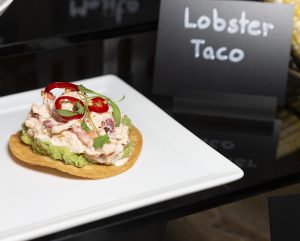Do you peruse Pinterest for your next edible creation or simply walk into the kitchen to see what new masterpiece can be whipped up on a whim? Or you find yourself engrossed in cooking challenge shows, thinking ‘I could do better than that’? Do you have a true love and passion for the culinary? Perhaps you should turn that talent and passion into a business by becoming a caterer. Here’s how to start a catering business.
What is a caterer
A caterer is one that provides food services at a remote site, such as a hotel or private party. Caterers may specialize in a specific type of food or offer a range of options that can be easily prepared and transported to a specific location. If you have always dreamed of sharing your culinary gifts with others, than maybe this is a route that should be considered. In fact, small catering operations can be operated out of a home kitchen with a few adjustments or, in the case of larger orders, a larger kitchen may be needed.
Start researching
If you still think catering might be for you, then why not start by researching schools that offer catering business courses. Though this certification is not fully necessary, it may help to land a job if you wish to work for another catering company before trying it on your own.
Apart from the catering certificate, you need to comply with the requirements of having staff that has been trained with a food handler card training, ensuring safety for all matters related to food handling and preparation.
Planning ahead and paying close attention to numerous facets of the industry are necessary when starting a catering business. When starting a catering business, keep the following considerations in mind:
Determine your intended audience
Choose the kinds of clientele you wish to work with, such as those who host weddings, corporate events, private parties, or particular cuisines. You may better personalize your services and marketing activities by having a clear understanding of your target market.
Create a strong business plan
Describe your objectives, budgetary forecasts, marketing plans, and operational specifics. A thorough company plan will direct your decision-making and offer a successful road map. Include a spending plan, a price system, and backup plans.
To manage your catering business, you must research the legal requirements and secure the relevant licenses and permissions. This could involve licenses for handling food, inspections by the health department, business registration, and liability insurance.
Make a meal that is appealing and diverse
Create a menu that takes your target market’s tastes and dietary restrictions into account. Give different possibilities, such as vegetarian, vegan, gluten-free, and allergy-friendly selections, some thought. Ensure that your clients are impressed with the high-quality components, visual appeal, and tastes you use.
To assure regular access to high-quality ingredients at reasonable prices, build partnerships with reputable vendors and suppliers. To suit your catering needs, establish a network of regional farmers, wholesalers, and specialty food suppliers.
Invest in high-quality equipment for catering
Buy or rent the necessary cooking equipment, serving utensils, dinnerware, and transportation vehicles. Make sure everything you use complies with industry standards and is in good operating order.
Assemble a skilled team
Recruit a group of knowledgeable specialists, such as cooks, servers, event coordinators, and support workers. Hire people who are as passionate about providing good service as you are and who have the relevant experience to offer exceptional catering experiences.
Effectively market your services
Create a solid online presence via social media, a business website, and online directories. To draw potential customers, display your portfolio, client testimonials, and previous activities. To create buzz and referrals, think about taking part in food festivals, working with event organizers, and providing samples.
Deliver top-notch client service
From the initial inquiry until the conclusion of the event, concentrate on providing great client experiences. Be prompt in your responses, attentive to your clients’ demands, and adaptable in how you handle their requests. Going above and above will establish a good reputation for you and encourage repeat business.
Maintain improvement and flexibility
Keep up with the latest culinary trends, business best practices, and consumer opinions. Make sure your menu, services, and operating procedures are continually evaluated and improved to match the changing needs of your target market.
Considering the costs
If you choose to go out on your own then you must first consider costs. You will likely need some form of advertising to get the business started. Once the orders come in, money will be needed to prepare the first dishes, transport them, and cover a wait staff to serve. The overhead cost should be contained in the original bid for the job. You will also have to plan dishes so that everything arrives fresh and ready to serve. Transportation is also a necessity if food is to be served at numerous remote locations. Once these small details are in place, you can begin cooking.
The key to being successful with any business is to know your product and showcase it well. If you want to know more about starting a business, you can find relevant information at companyformationaustria.com.
Be up front with potential clients. If Italian food is not your best then explain that you are much more confident in other styles. While this may deter a potential client, a bad service can ruin an entire business. Word of mouth is a caterers’ friend.
Starting a catering company calls for commitment, meticulousness, and a love of fine cuisine. You’ll be well on your way to developing a prosperous and profitable catering company by paying close attention to these essential guidelines and consistently aiming for excellence. Good luck!






